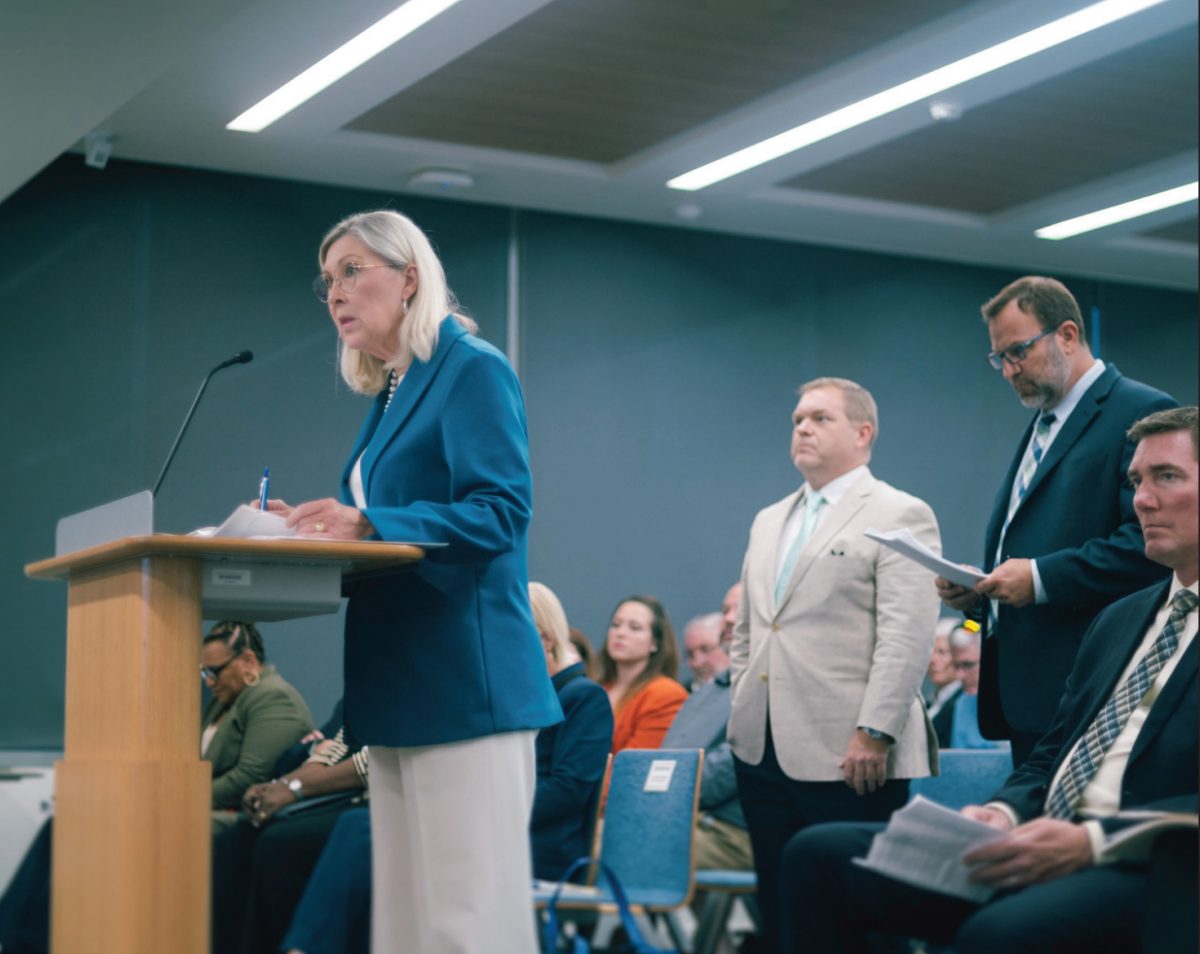
DIEGO SANTOS
Pamela Anglin, the Chief Financial Officer, presents the proposed 2026-2027 budget before the board of trustees during their Aug.21 meeting.
Adjusting to Gov. Greg Abbott’s freeze on tuition and income tax created challenges for the TCC board of trustees to adapt to, leading to the current approval of the 2026- 2027 budget.
At their Aug. 21 meeting, the board was presented the college budget proposition by Chief Financial Officer Pamela Anglin.
The budget was adopted to zero-in on expenditures, including looking at high and low performing TCC programs and their outcomes. Anglin explained that while they assessed the main budget costs, they wanted to focus on pushing student success in their specialty studies, as this could encourage more state funding.
“After we get through this fiscal year, we’ll have more decision-making tools available to us than we’ve ever had before,” Anglin said.
It was proposed that the current property tax rate, 11.228 cents, stay the same in the fiscal year 2026 budget and expected enrollment to increase within the next year. In total, however, the budget foresees a change from $421 million to $415 million in expenditure.
Trustee Shannon Wood emphasized the importance of this move on the college’s part, explaining that it was the college’s duty to listen to the taxpayers in the county.
“All eyes are on us to do what’s right for the taxpayers and Tarrant County College has tightened the spending belt and knows the answer is not to raise our taxes,” she said.
It was explained by Anglin in the meeting that while the budget is still very tightly packed, most of the increase in expenditure comes from the campuses adjunct and overload pay, as well as software allocated to the departments.
“We started working Friday on finding things to reduce,” Anglin said. “This is where we are today. After almost a week of doing it, we’re not through, but we will get it balanced.”
Trustee Laura Forkner Pritchett had asked that special attention be paid to ensuring focus was put on set-aside budget income for unfilled positions. Anglin said they assessed the portion of the budget for unfulfilled positions, but that most were the lowest paid in the college and among the market
with little to no significant setbacks in expenditure.
“Our number of those unfilled that were budgeted have been going down every year, and we’re still going to have some remaining budgeted funds that go unused this year, but it won’t be at the magnitude that we’ve had,” Anglin said.
The trustees acknowledge Anglin and the team working to create the budget for their work, and Pritchett included a moment to note the attention paid in staying committed to focusing on the problem areas of the previous budget.
“Thank you for all of the diligence in this. From my perspective, you’ve done a tremendous job,” Pritchett said